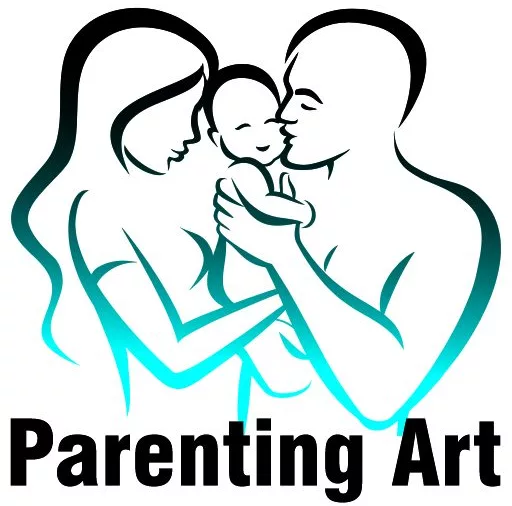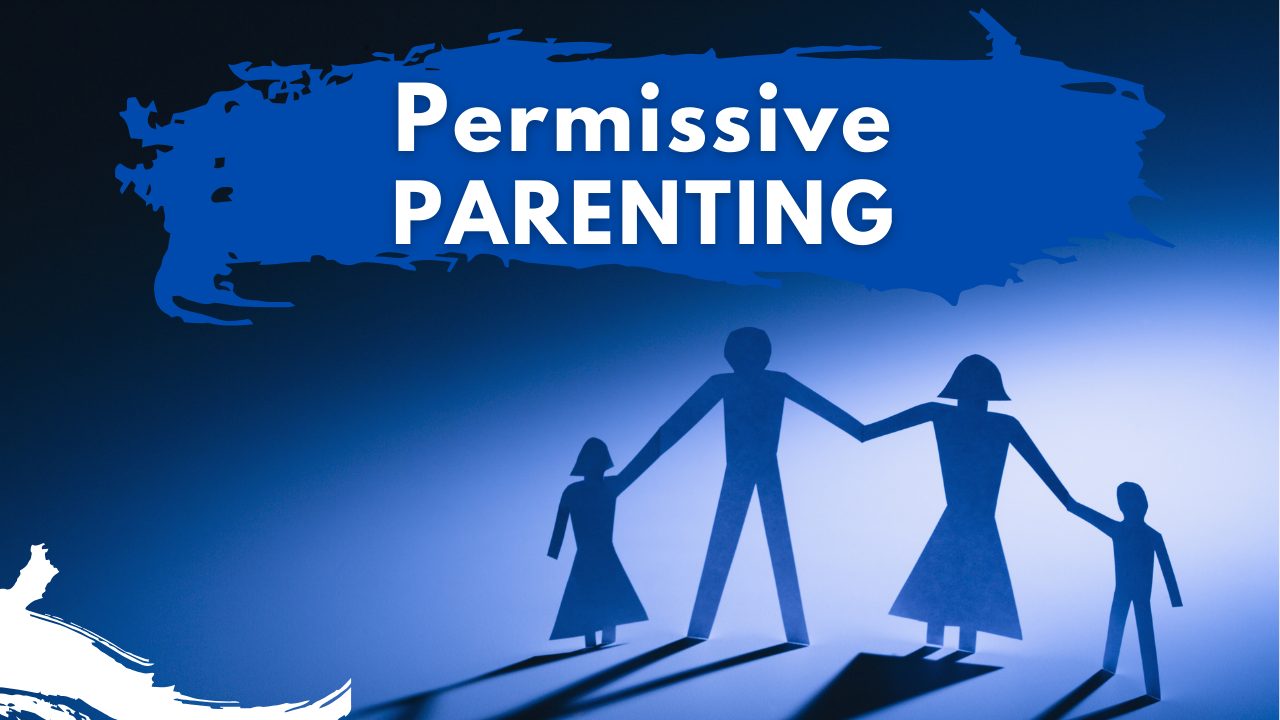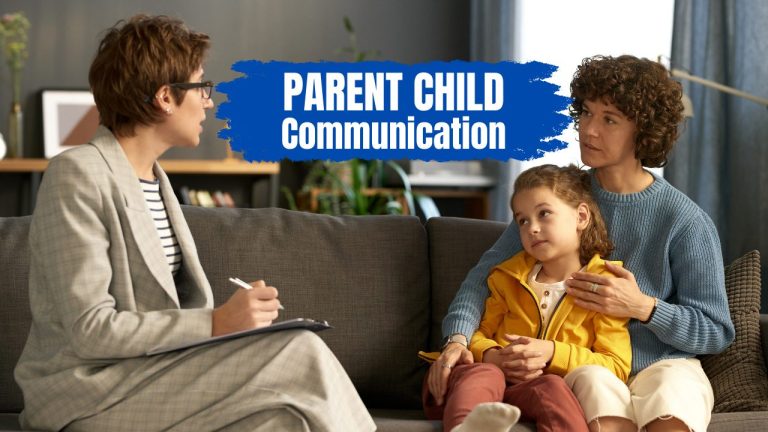Permissive Parenting
Permissive parenting style is not demanding, but has high responsiveness and love toward children. Parents having permissive parenting style put some rules and responsibilities in front of their children, but have low expectations from their children.
They don’t do late to fulfil their children’s needs, wishes and desires. They are scared to make boundaries on children and have belief that their children are true, honest and perfect in the life.
In this article, you will recognize about:
- What is permissive parenting?
- Permissive parent traits
- Permissive parenting examples
- What to do if you or your wife is a permissive parent?
- Why does parent choose permissive parenting?
- What are four types of parenting style?
- Characteristics of permissive style of parenting
- Is permissive parent good or bad?
- What is wrong with permissive parents?
- 9 effective steps to do parenting more effectively
- How to change if you are a permissive parent?
What is permissive parenting?
Permissive parenting is fulfilling and puzzling. Because, they do not make strict rules which children have to follow up at any cost. They permit their children to take decisions of life. They provide all those things which can be essential for their children. But, they don’t have big demands.
Sometimes, to train their children, they assign some home tasks to make children responsible. Mostly, they forgive their children at that time when they make mistakes. They treat their children like a friend. They are also loving and more responsive for the needs and desires of the children.
Permissive parents have defective rules that can push their children to the unhealthy life style. It also affects badly on the mental and physical health as obesity and many others health problems of the children. Moreover, permissive parents lead their children to spend selfish life not caring about others. They just think about themselves and their benefits.
Permissive parenting traits
- They make rules that are easy to follow. They don’t make strict rules which affect the whole life of the children.
- Don’t show authority. Treat children just like a friend.
- Don’t forget children’s opinion while taking particular decision of life.
- Focus on the freedom of the children instead of responsibilities.
- Permissive parents try to remain positive and moderate in every risky situation.
Permissive parenting examples
Actually, parents choose different parenting styles to deal with children. Many parents treat their children as permissive and authoritative parents. Others give pure warmth and authoritarian behavior. Permissive parenting style is also included where children feel freedom and achieve many things which they want to do.
Permissive parents are lenient and show extra ordinary kindness towards their children. They don’t punish their children when they make mistakes.
Examples of permissive parenting style are mentioned below.
- Permissive parents permit their children to come back till late at night while they know that they go to school early in the morning.
- They never say ‘no’ to their children to keep them happy.
- They also don’t force their children to do any specific work/ task.
- This type of parenting behavior makes their children more active physically.
- Parents don’t have any family meetings where children share their ideas and opinions.
- Love and care are the compulsory factors of the permissive parents. They mostly think about their children’s happiness, sadness and needs.
- They give complete freedom to their children. They never make any timing and guidelines of study, sleep and play.
- Permissive parents keep children on the top of their priorities and the happiness of children is essential for them.
- Children of these parents don’t have the skills and leadership abilities.
- They don’t care about their children’s grades and good marks.
- They don’t guide their children to avoid all kinds of drugs and alcohols in the teenage.
What to do if you or your wife is a permissive parent?
Permissive parenting is considered the style of parenting who give freedom and don’t have great demands towards their children. They never set boundaries and principles for them. But, there are some demerits that affect the children. To change this style of parenting, there are some strategies which you need to recognize and follow appropriately.
- For good parenting, parents should develop a list of basic household rules and principles.
- To reward children’s good actions and appreciations are essential tools which make your children lenient and responsible.
- As a good parent, you need to be strong, firm and consistent.
- Make your children understand the consequence of breaking rules.
- Parents shouldn’t focus on their own self- esteem.
Why do parents choose permissive parenting?
No doubt, parents are the great blessing of God who sacrifice themselves and their own needs just for their children. But, God doesn’t make every one with same habits and characteristics. Parents directly and indirectly impact a lot to the life of the children. Good parents impact and change the life of their children by providing peaceful environment.
Contrary to this, there are permissive parents who try to give everything to their children, but don’t put limitations on them. Following reasons will clarify the logic of parents adopting permissive parenting style:
Deprived parenting
Permissive parents choose this style because they have faced difficulties and hurdles by their own parents. Permissive parents have lost many things that are most crucial for their life due to the decisions of their parents. Therefore, they don’t want to make their own children deprived by making too strict rules.
They become good friends for their children. They don’t say “No” because, they never want to make their children sad and upset. They always give those things which their children demand.
Compensate for divorce
Parents select this parenting style after separation or in the case of divorce. They know that it affects the life of children. To make their children relax and happy, they permit their children to do many things. That’s why they allow them to make their own decisions and don’t interfere in their life.
Permissive parents are tired to set limits
Permissive parents are tired to set limits. They compare limits to the unsupportive and depressed bad life. They don’t make timetable of eating & watching TV. Even that they fail to guide their children when they come late at night even when they have to go to school early in the morning.
Characteristics of permissive parents
Permissive parents have no demands towards their children’s life and better future. They don’t force their children to follow timetable and specific rules. They are loving, caring and warm. They treat their children well without setting limit and strict rules.
They mostly fulfil their children needs and desires and are afraid of making them sad and unhappy. They keep their relationship with their children like friends not as parents. Even they don’t criticize towards their children’s mistakes. They forgive them and don’t object their children’s plans and decisions.
Characteristics of permissive parents
- Lack of particular structure and guidelines
- They are expressive (loving and warm)
- They are co-operative, but they don’t think about their children’s life.
- They provide very little guidance to their children.
- Such parents make few rules and guidelines for kids.
- Don’t prefer their children’s academic achievements and goals.
- They prefer to be liked in front of their children by few rules.
- Permissive parents always prefer their children’s desires and basic needs.
- They fail to make boundaries for their children
- Lack of management and timetable
What are the four types of parenting styles?
The four main styles of parenting are authoritarian, authoritative, permissive and neglectful. Diana Baumrind is a progressive psychologist who represents these four types of parenting and their impact on the children’s mental & physical health.
Each type has its own impact on the children’s behavior and development in social life. They can be sensitive and self- regulated which affects the children’s entire life. This chart will help you to the better growth and well-being of the children regarding types of parenting styles.

What is wrong with permissive parents?
Permissive parents don’t like to tease their children for anything. They hate this idea. They give all those things which their children want to take. They don’t get angry and certainly don’t want their children to be angry and unhappy at them.
But, it’s not enough for the development of the children. Setting limits is the essential key that plays a crucial role to understand and fulfil the basic needs of the children from childhood to adulthood. The desires of small kids are opposite to the long- lasting progress and protection.
When parents fail to set boundaries, children have very few chances to set timetable and make boundaries for themselves. When parents don’t set limits, many things happen. These are:
| Permissive style of parenting weakens the relationship between the parents and the children. Lack of interest and emotions of parents is not enough for their children’s support and healthy life style. |
| Children should know about the different roles and behavior of their children and accept that they are different from one another. The children’s focus should be at safety and protection of their own. |
| The children of permissive parents never learn self- management and discipline. They don’t set goals. |
| Permissive parents make long- lasting agreements about those things which are harmful for their children. |
| It’s hard for the children to make sure that the time should be spent for the internal happiness and establishment for themselves. |
| Permissive parents don’t force their children to follow up rules strictly even if they come home late at night. |
| The children would never learn that having a lot of desires takes children on the way of disappointment. |
| The children of such parents cannot understand that sadness, tolerance and disappointment are also important to understand life in a better way. |
13 effective steps to start parenting more effectively
There are some essential steps which can help you to do parenting more effectively. These are:
- Decide your priority regarding your children’s brought up.
- Boost your children’s self- esteem.
- Listen to your kids.
- Catch kids being and doing good.
- Set limits and be consistent with your discipline.
- Spare quality time for your kids.
- Channelize your feelings and emotions.
- Be a good role model.
- Make effective and open communication your first priority.
- Be flexible and willing to adjust your parenting style.
- Show that your love is unconditional.
- Parents should know about their own needs and limitations.
- Express your care and love in the best possible way.
Is permissive parenting good or bad?
Off course, it’s bad. This style of permissive parenting harms the life of their children. Parents treat their children friendly. Children of these parents feel free and don’t take their permission in any matter. Permissive parents deals with their children politely and softly. They don’t like to make rules and principles for the development and better growth of their children.
This behavior of parents also has negative effect on their children’s mental health. According to a psychologist, sensibility of parents is an essential factor for the better development and well- being of the children. Parents should set boundaries and guide children when they feel tension and stress in any specific matter.
How to change if you are a permissive parent?
It’s hard to change permissive parents. For the help of those parents who really want to change themselves, following are some effective steps which play a pivotal role in effective parenting:
- First of all, parents should recognize themselves and find out those things which make them permissive.
- Don’t be too much worried about your past. You need to resolve your past.
- Establish a good parenting standard and don’t treat your kids more than a friend.
- Give yourself space and polish yourself and the skills of your children.
- Give time to yourself and meet your entire family.
- Attempt to change yourself positively and move forward.
- Parents should know about their won consequences and triumphs.
- Don’t make excuses.
- Provide more guidance and plan a timetable for your children and work accordingly.
- Explain the rules and principles in front of your children briefly.
- Establish new rules with acceptable behavior and try to follow them accurately.
- Empathy is a powerful tool; parents should use it not for the way of tolerance but also guide children.
- Maintain your authority as parents.
- Don’t always speak; try to listen to your kids also.
- Appreciate and reward your children when they do well and achieve success.
- Parents should communicate children’s expectations.







